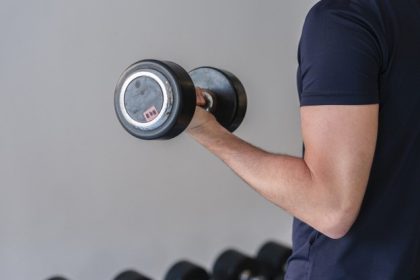New Rating System Aims to Help Real People Make Sense of Health Guidelines

SEATTLE — A team of University of Washington researchers have developed a new method for assessing the health risks of what we consume, an approach they say will make it a lot easier for people to determine for themselves which health advice to follow and which to ignore.
The researchers are Aleksandr Aravkin, an associate professor of Applied Mathematics at the university, Christian Razo, a postdoctoral fellow at its Institute for Health Metrics and Evaluation, and Jeffrey Stanaway, an assistant professor of Global Health and Health Metrics Sciences at the university.
The work was recently published in the journal Nature Medicine, and the trio just published what they called a “Research Brief” on their method in The Conversation.
Explaining the rationale behind their work, they wrote in The Conversation:
“Clear messages and evidence-based guidance regarding healthy behaviors are crucial. Yet health guidance is often contradictory and difficult to understand.
“Currently, most epidemiological analyses make strong assumptions about relationships between risks and health outcomes, and study results often disagree as to the strength of risk-outcome relationships.
“It can be confusing for experts and non-experts alike to parse through conflicting studies of varying strength of results and determine if a lifestyle change is needed,” they said.
Their goal in both venues is to offer “a straightforward way for both policymakers and the general public to assess the strength of evidence for a given health risk — like consuming red meat — and the corresponding outcome — ischemic heart disease — using a rating system of one to five stars.”
The system they developed is based on several systematic reviews of studies regarding risk factors like smoking and health outcomes such as lung cancer.
The data was then compiled in a simple chart with an equally simple to understand “star” rating system.
Well-established relationships between risks and outcomes score between three and five stars, whereas cases in which research evidence is lacking or contradictory garner one to two stars.
In their analysis, only eight of the 180 pairs that were analyzed received the top rating of five stars, indicating very strong evidence of association.
“The relationship between smoking and lung cancer, as well as the relationship between high systolic blood pressure — the higher of the two numbers in a blood pressure reading — and ischemic heart disease were among those eight five-star pairs,” the researchers wrote.
“This rating system enables consumers to easily identify how harmful or protective a behavior may be and how strong the evidence is for each risk-outcome pair. For instance, a consumer seeing a low star rating can use that knowledge to decide whether to shift a health habit or choice,” they said.
The researchers said they hope that decision-makers will be able to use their star rating system to create informed policy recommendations that will have the greatest benefits for human health.
“We also hope the public can use the ratings and the visualization tool as a way to more clearly understand the current level of knowledge for different pairs of health risks and outcomes,” they wrote.
Dan can be reached at [email protected] and at https://twitter.com/DanMcCue.

























